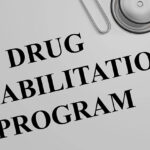Hassett & Associates, P.A.
Call 24/7 - (954) 791-3939 | Hablamos Español
Drug Transportation is the physical movement of drugs in one’s custody. It is unlawful for any person to sell, manufacture, or deliver, or possess with intent to sell, manufacture, or deliver, a controlled substance. This criminal act is common in the Miami and Fort Lauderdale areas because these communities are historically saturated with criminal drugs. The criminal drug trade has slowed in the recent two decades, but there is still a significant amount of criminal activity relating to Drug Possession, Drug Sales, and Drug Transportation in South Florida. Large cargo vehicles, trucks, and vans are commonly used mechanisms for Drug Transportation. The Miami and Fort Lauderdale police commonly catch criminal Drug Transportation during regular traffic stops for speeding or other improper or criminal driving infractions. Certain drugs and chemical substances are by law known as “controlled substances.” To prove the criminal violation of Drug Transportation, the State Attorney must prove beyond a reasonable doubt that the criminal suspect transported or carried a certain substance, that the substance was a controlled substance, and that the criminal suspect had knowledge of the presence of the substance. To “possess” means to have personal charge of or exercise the right of ownership, management, or control over the thing possessed. Possession may be actual or constructive. Actual possession means the controlled substance is in the hand of or on the person, or the controlled substance is in a container in the hand of or on the person, or the controlled substance is so close as to be within ready reach and is under the control of the person. Mere proximity to a controlled substance is not sufficient to establish control over that controlled substance when it is not in a place over which the person has control. Constructive possession means the controlled substance is in a place over which the criminal suspect has control, or in which the criminal suspect has concealed it. In order to establish constructive possession of a controlled substance if the controlled substance is in a place over which the criminal suspect does not have control, the State Attorney must prove the criminal suspect’s (1) control over the controlled substance and (2) knowledge that the controlled substance was within the criminal suspect’s presence. Possession may be joint, that is, two or more persons may jointly possess an article, exercising control over it. In that case, each of those persons is considered to be in possession of that article. If a person has exclusive possession of a controlled substance, knowledge of its presence may be inferred or assumed. If a person does not have exclusive possession of a controlled substance, knowledge of its presence may not be inferred or assumed. Knowledge of the illicit nature of the controlled substance is not an element of the criminal offense. Lack of knowledge of the illicit nature of a controlled substance is an affirmative defense. If the criminal suspect raises this affirmative defense, then the jury is permitted to presume that criminal suspect was aware of the illicit nature of the controlled substance if the jury finds that the criminal suspect was in actual or constructive possession of the controlled substance. If from the evidence you are convinced that the criminal suspect knew of the illicit nature of the controlled substance, and all of the elements of the charge have been proved, the jury should find the criminal suspect guilty. If the jury has a reasonable doubt on the question of whether the criminal suspect knew of the illicit nature of the controlled substance, the jury should find the criminal suspect not guilty. If you have been charged with Drug Possession for Sale in Miami, Fort Lauderdale, Broward County, or Miami Dade County, you should consult an experienced competent criminal defense attorney who can represent you in criminal court. Kenneth P. Hassett of Hassett and Associates, P.A. is a criminal defense attorney who represents clients in Miami, Fort Lauderdale, Broward County, Miami Dade County, and the rest of South Florida. Having a Fort Lauderdale Drug Transportation Lawyer to represent you in criminal court is advantageous, especially when charged with serious criminal offenses. Contact Hassett and Associates, P.A. for an immediate free consultation 24 hours per day seven days per week with a criminal defense attorney if you have been charged with these criminal offenses.
893.13 Prohibited acts; penalties.
893.12 Contraband; seizure, forfeiture, sale.
Disclaimer
The information on this page does not represent legal advice. Florida Statues obtained from Online Sunshine, www.leg.state.fl.us, the official site of the Florida Legislature. Because the law is continually changing, some of the provisions contained herein may be out of date. It is always wise to seek counsel from an experienced criminal attorney like Kenneth Hassett.
If you have been charged as an Accessory After the Fact or a Principal in the First Degree to a criminal offense in Broward or Miami-Dade County, call Criminal Defense Attorney Kenneth P. Hassett.


